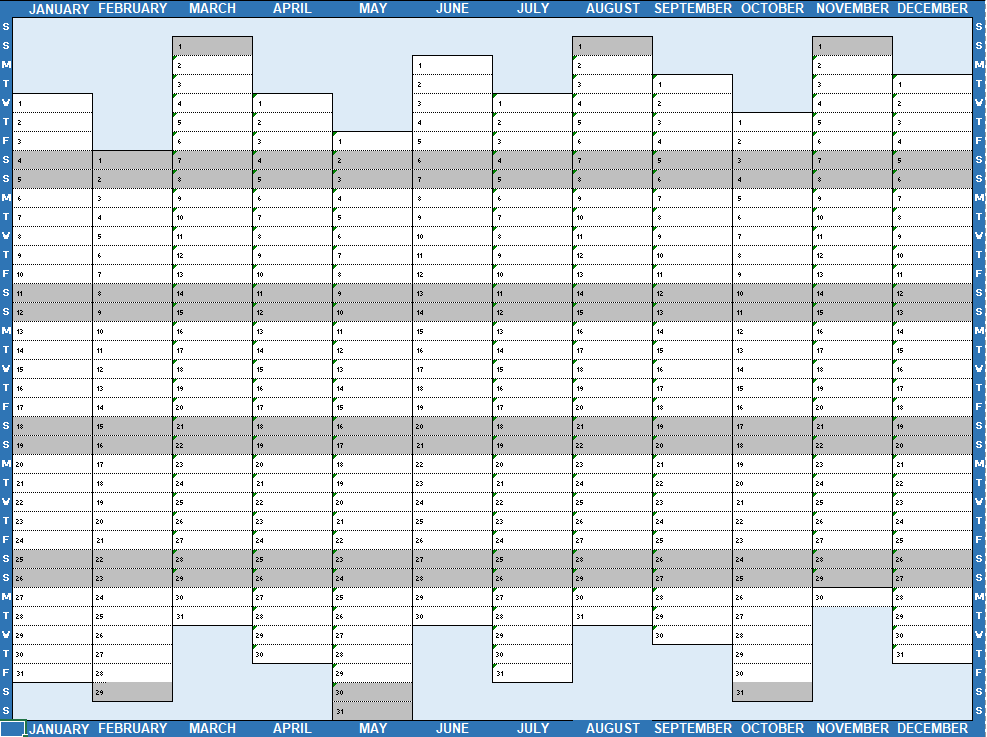
Setting the meeting dates should be done one to two years in advance, if possible. This is no quick or easy feat and once you have bedded down dates the rest of the organisation can lock in their meetings which will feed into the Board meetings.
Start with a Blank Calendar
Print out the calendar for the year on A3 Paper. Using Excel is best. The example below is for 2020.

Populate the Calendar
– Add all known holidays;
– Block Out the beginning of January and the end of December when people will be taking leave;
– Highlight the months the meetings have taken place in previous years;
– Find out if there are any significant events occurring i.e. Olympics or Major conferences;
– Check with Investor Relations when the Full and Half Year Results will be released;
– Identify if the CEO and Chairman have significant travel planned; and
– Email Directors asking if there are any dates they are unavailable.

Add the Board meeting dates
– Start with when the Full Year Results will be released;
– This will determine when the Annual General Meeting will be held;
– Allow two days for the meetings the time can be reduced closer to the meeting day depending on the – length of the agenda;
– Avoid starting a meeting on a Monday, as this may mean directors need to travel on a weekend;
Board Committee meetings
For logistical purposes it is easier to hold the Committee meetings the day prior to the board meeting, this may not always be possible.
If the meetings are held prior to the Board meeting the Committee Chairperson can provide a verbal update on discussion from the meeting.
Add Paper Issue and Paper Due Dates
Papers should be with the Directors five (5) working days prior to the meeting.
If the papers are being uploaded Electronically via a Board Portal then the final approved papers with required to be with Secretariat six (6) working days prior to the meeting.
If the papers are being distributed in hard copy format the final approved papers will be required eight (8) working days to allow time for printing, binding and couriers.

Board meeting schedule approval
Once the dates have been confirmed the schedule should submitted to the Board for approval along with the Board Annual Agenda.
Following approval the Executive can schedule their meetings and activities which feed into the Board meeting schedule.
The meeting dates should only be available internally. Directors should update their availability to other external parties.
Moving a meeting has a significant impact on the Corporate Calendar and other Director’s commitments and should be avoided, where possible.

